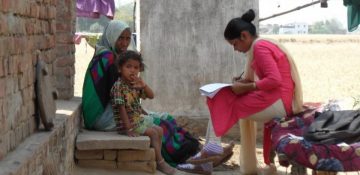Perception Study Toolkit
A negative perception of leprosy and other neglected tropical diseases (NTDs) is a problem that is seen globally. It results in discrimination, social exclusion and widespread mental health problems. Therefore, NLR developed the Perception Study Toolkit (PST).

About the toolkit
This toolkit consists of four measures, a Communication Needs Assessment questionnaire, Knowledge Attitudes and Practices questionnaire, the EMIC community stigma scale and the Social Distance Scale. It also comprises qualitative methods to investigate perception: the way people see leprosy, what they know about leprosy and their attitudes, beliefs and reported behaviour towards persons affected by leprosy. The PST is a toolkit and comprises separate instruments that assess different aspects of perception. However, it is also possible to use only one or a few of the instruments of the PST.
Added value
The PST can help identify specific beliefs, knowledge gaps, misconceptions and fears to inform community education and behaviour change interventions and can be used to monitor and evaluate such interventions. Using a standard toolkit like the PST would enable assessment of the perception of leprosy or other NTDs that would allow comparison across projects and countries including monitoring of changes over time.
Implementation
the Perception Study Toolkit (PST), was used in the Dutch Postcode Lottery funded ‘Stop the transmission of leprosy project‘, also known as ‘PEP++ project’, to implement ‘perception studies’ for the assessment and monitoring of knowledge, attitudes and practices regarding leprosy. The PST could form the basis for developing a standard toolkit to assess perception of leprosy and, with minor adaptations, other NTDs that would enable comparison across projects, countries and would allow monitoring of changes over time. We are not aware of an alternative toolkit to measure perception that is used in the field of NTDs.